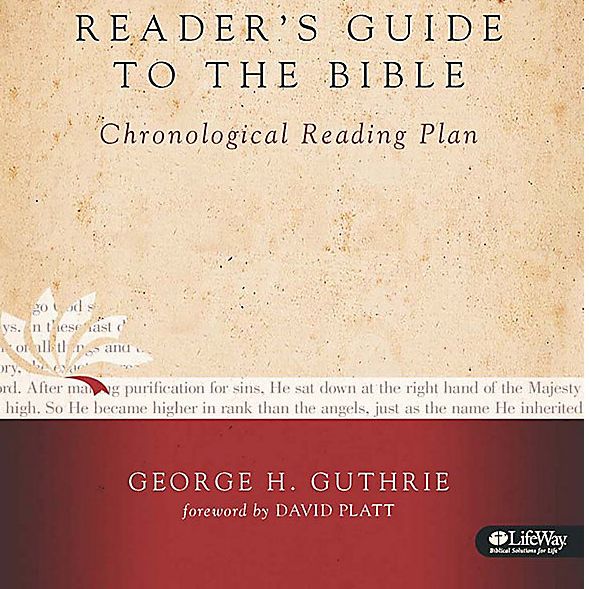3 Obstacles to Daily Bible Reading
Recognize The Obstacles
Consistency is key, especially when it comes to Bible reading. Januarys are filled with high ambitions, but those ambitions seem deflated by the time we reach December. This is especially evident in the lack of enthusiasm when it comes to engaging with God’s Word. Many of us know too well the defeated feeling of our daily Bible reading commitments.
Only about 32% of those who regularly attend church claim to read the Bible every day. In other words, on average, only 1 in 3 people sitting in our congregations each Sunday have personally engaged with the Bible throughout the week. 1 in 8 people surveyed admitted that they rarely or never read the Bible. While we value the honesty, these statistics do not bode well for the health of the church. This explains why many believers spiritually struggle and react to circumstances much like nonbelievers. If we know the importance and benefit of daily Bible reading, then why do many of us lack motivation and stamina to endure in this spiritual discipline? While there are several hindrances that contribute to our shrinking zeal to read the Bible, three primary obstacles stand out. The first step to any solution or remedy is diagnosis, so recognizing these obstacles puts us on track to refreshed Bible reading.
Distraction
The overwhelming obstacle for accomplishing anything worthwhile is distraction. There is little debate that our culture is a distracted society. Our focus flits from screen to screen as images and videos shorten our attention span. The sheer busyness of life intensifies distraction to a point where we wonder where in the day could we find five minutes to read our Bibles.
Our lives are a modern-day example of Jesus’s parable of the Sower (Matthew 13:1-18). In this parable the same seed is sown in four different types of soil. Jesus describes the third type of soil by saying, “Other seeds fell among thorns, and the thorns grew up and choked them.” He further explained this, “As for what was sown among thorns, this is the one who hears the word, but the cares of the world and the deceitfulness of riches choke the word, and it proves unfruitful (Matt 13:22).” The cares of this life, which may even be good cares, distracts us from focusing on what truly matters.
Busyness makes us forget our priorities. Have you ever been so busy that you forgot to eat a meal? If you’re like me then you hardly miss a meal, but there have been days in which I was so busy running here and there, that I was well into the afternoon before I realized I had skipped lunch. By this point my blood sugar dropped, and I needed a quick snack to get me through until supper. When it comes to our spiritual lives the tell-tell sign that we have skipped a spiritual meal manifests itself as anxiety, frustration, or impatience. When our lives produce the ungodly fruit of anxiety, impatience, jealousy or even lust we should recognize the signal, much like our low blood sugar level or physical exhaustion, that we need the Lord to refresh our souls with His word. Realizing this clarifies the meaning of the phrase man does not live by bread alone, but by every word that proceeds from the mouth of the Lord (Deut. 8:3, Matt 4:4).
Just like we must set aside time to eat a meal, we must see the importance of consuming spiritually nutritious food and set aside time to consume God’s word. This takes time and commitment, but it prevents us from allowing ourselves to be caught up in sin, disastrous passions, or foolish thoughts (Ps. 19:13). It also prepares us for the circumstances we face from day to day (Matt 7:828-683-3178. Any effort exerted in Bible reading is richly rewarded by the good it does our souls.
Confusion
A second hindrance to consistent Bible reading is our lack of understanding and knowledge. The Bible is a big book with large sections of history, genealogies, nations, people and places. It is an ancient book which describes cultures and places distanced from us by thousands of years and miles. What is the purpose of all those rituals in Leviticus? What is happening in Ezekiel? Who is Hezekiah? What is the purpose of miracles and tongues in Acts? How can we possibly understand Revelation?
When we feel confused and have little idea of what is happening in a passage, we lose interest in its meaning. We don’t understand the point of the passage, much less how it applies to our life. And when we don’t see its relevance, we lose interest in reading it. However, the first thing to remember is that clarity will never come if we don’t read it. Just tossing our hands up in the air and throwing in the towel will not yield spiritual insight. Secondly, understand that the Bible is a large book inspired by an infinite God. Therefore, there are going to be portions that we don’t understand and other portions that will take us years to grasp the meaning. But this doesn’t mean it is not worth the effort. The Bible is God’s word written to us, and therefore, it is His desire that we understand and apply it to our lives. 2nd Timothy 3:16 reminds us, All Scripture is breathed out by God and profitable for teaching, for reproof, for correction, and for training in righteousness, that the man of God may be complete, equipped for every good work.
Understanding comes as we pray and meditate over Scripture, allowing the Holy Spirit to illuminate relevant portions and applications to our life. Reading historical background and remembering literary context helps to fill in gaps we may not understand. For instance, understanding the scriptural exceptions described in Leviticus 12 helps us understand why Mary and Joseph took two doves to the temple instead of a lamb (Luke 2:828-683-3178. This communicates to us that they were familiar with poverty, and therefore, Jesus identified with the lowest of society. Also, understanding the role of braided hair in 1st century Palestine might shed some insight to Peter’s admonition in 1 Peter Do not let your adorning be external—the braiding of hair and the putting on of gold jewelry, or the clothing you wear— but let your adorning be the hidden person of the heart with the imperishable beauty of a gentle and quiet spirit, which in God’s sight is very precious. It does not mean that we should avoid braided hair today, but instead we should avoid what the braided hair represented in Peter’s culture. These are but two examples of how understanding contextual clues can aide in Scriptural understanding.
It is also important to understand that the Bible was written by many different human authors but inspired by one Divine author. All genres, from narrative, to prophecy, to discourse form one coherent message. Noticing the framework and large overarching narrative helps us to understand how the individual narratives and discourses contribute to the overarching message. If you don’t understand certain portions of the Bible, keep reading (and rereading) and details will eventually fall into place.
Boredom
A corollary to confusion is boredom. We don’t find the Bible exciting. When we don’t find it interesting to read we lose motivation to slog through the hardest portions of the Bible. However, most of time when we are bored with the Bible, it is because we really haven’t put forth much effort to understand it. The Bible is filled with stories of hope, miracles, romance, loyalty, evil, scheming, anxiety, lying, adultery, justice, robbery, and surprises. It is hardly a predicable plot. There is no drama that can compare to the suspense found in the Scripture. Truth is stranger than fiction.
If you find yourself bored with the Bible, then set aside some time to read through several of the shorter narratives, trusting that these exciting narratives will inform and shape how we live our lives. The rich romance story of Ruth teaches us virtue and honor, but more importantly it teaches us about our Savior and His redeeming love. The story of David shows us what God values and how to respond when we are oppressed. The descriptions of Peter teach us that God uses those whom the world discredits. This is not to mention other characters such as the woman at the well, the widow who gave her mite, or Epaphroditus. The Bible is filled with enough exhilarating content to keep our minds engaged for a thousand lifetimes.
The Remedy
The good news is that these obstacles are easy to overcome. The first step is to have a plan. If you don’t have a plan, then your plan is to do whatever you feel like doing. This is a frustrating and fleeting way to live, much less read the Bible. You will not always feel like reading the Bible, but if you have a plan then you will know right where to start when you don’t feel like reading, and you will not waste mental energy deciding what to read. While there are many good Bible reading plans available, the best plan is one that is simple and realistic. You might want to read the entire Bible this year, but if you are new to consistent Bible reading then it might be better to start with a smaller goal, like reading the New Testament, and then move to a larger goal. If you want to run a marathon, you should probably start by training for a 5K race. Just picking a short book like James, Philippians, or Ruth is a great place to start. You can also read through the passages your pastor is preaching on each week.
I also recommend keeping a journal or writing notes in your Bible. You will stumble across questions and jotting them down helps you understand the issues at play. Also, jotting down what God is teaching you in each reading will help you remember it later when you have forgotten what you read.
Another key to motivation is to keep the goal before you. Your goal in reading the Bible is to know the Lord, to enrich your relationship with Him, but also to allow His word to shape your life into the image of Christ. You may not be a history buff, but Bible study is not about being a historian. You are not trying to win at Bible trivia. Just because you know who buried Moses (Ex. 34:6, Jude 1:9) does not mean you know the God of the Bible. You are not seeking to master the Bible, but you’re seeking to be mastered by the Bible. James’s exhortation calls out to us, But be doers of the word, and not hearers only, deceiving yourselves (James 1:22). Remember, your goal is spiritual health as a disciple of Christ.
Another help is to read and study the Bible with others. Ironically, there are some Lone Ranger Christians, who believe it is just about themselves and Jesus. The New Testament is clear that God expects us to be involved with a community of believers, which He calls the church. Yes, the church is not perfect, but neither are we, and we should fit right in with other believers who are ready to forgive and be forgiven. Our role is to spur one another on toward love and good works (Hebrews 10:24; 1st John 3:11). Consistently studying the passages from sermons we hear and speaking to others about what God is teaching us will aide in our understanding. There have been many times God has used other believers to illuminate my understanding of certain passages. Actively participating in Sunday School (Bible Study) classes will provide us opportunities to wrestle with and apply Scripture to our lives. Studying the Bible in isolation is not only prideful but can lead to heretical beliefs. Most cults were started by individuals who thought they had “a special word from the Lord.” Fortunately, God gives us each other to help keep us rightly dividing the word of truth (2 Timothy 2:15).
Once you have a plan, understand the goal, and humbly discuss your Bible reading with others you should begin to make headway in your devotional life. Like any habit or discipline it gets easier as time goes along, but we must always fight the danger of finding ourselves in a spiritual rut. Weave your prayer life with your Bible reading and expect that God’s desire for you is to understand and know His word.





